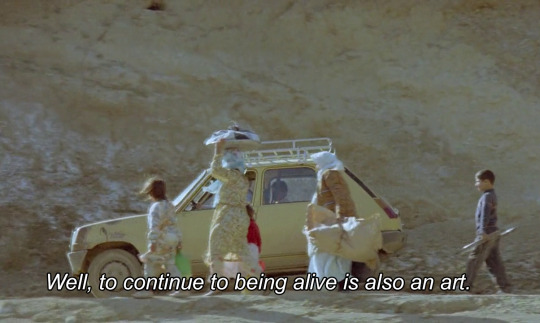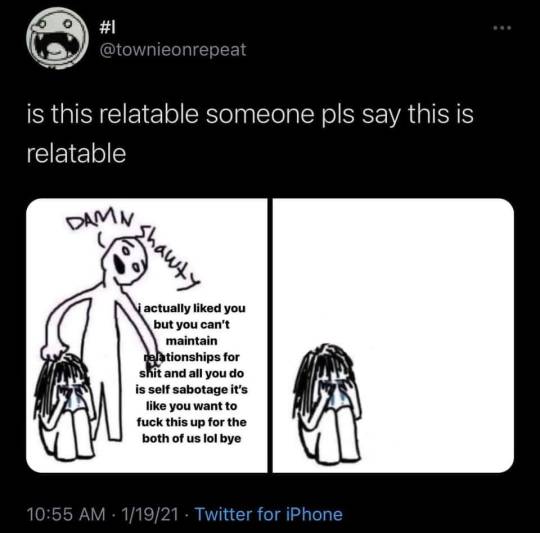Text
Literal definition of spyware:

Also From Microsoft’s own FAQ: "Note that Recall does not perform content moderation. It will not hide information such as passwords or financial account numbers. 🤡

247K notes
·
View notes
Text
word on the street is that you have to keep living
23K notes
·
View notes
Text
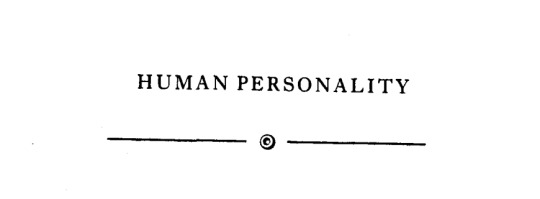

Human Personality, Simone Weil, 1942-3
Simone Weil was born into an affluent life in Paris in 1909. Very early, she demonstrated a strident, uncompromising compassion when she gave up sugar in solidarity with French soldiers in the First World War. While still a schoolgirl, she declared her solidarity with the communist left. Though uncompromising in her persona at school, she was also brilliant and had the best education France could offer in languages, classics and philosophy. While at the École Normale Supérieure, her tutor set her focus on the problem of man as an active being. To address this she took Plato as her master and Descartes as her antagonist. These influences remained touchstones in her intellectual life. Despite the spiritual writings for which she is best known, her training and approach was that of a philosopher. For the few years of her working life, she taught philosophy in secondary schools. Weil’s compassion and strongly-held opinions led directly to a life of activism, which often scandalised the towns in which she taught. Initially, her interests lay in the labour movement as well as pacifism. Her judgment of the political weakness of the labour movement and more generally of social causes led to the qualification of her views on pacificism. Violence, she then thought, could be a defense for human dignity against the Fascism that diminished it. However, her exposure to the Spanish Civil War led her to contradict herself. Force, she thought, could never be righteous. Allowing that someone was the legitimate object of force inexorably nurtured tribalism, making murder seem natural. Force controls those who would use it, an insight she saw in *The Iliad* which treated Greeks and Trojans alike as victims of force itself. Her views on force were a singular example of how her developed perspective was at odds with received pieties in Western Culture, both those of the establishment and those who opposed it. She denied the importance of political rights; of justice by due process; of state or private ownership; private choice in life; and legitimation by collective, public will. Instead she elevated as primary response to affliction; the inestimable significance of a human being; the needs of the soul as the basis for government; meaningful labour; and good and evil. Weil was unafraid of intellectual isolation, nor did she seek fellows—though she did publish her essays in intellectual journals. She was not celebrated in her lifetime, though the force of her intellect was known. Many gave her a wide berth, because of her uncompromising manner, which was also evident in how she lived. While working for the Free French in London on a manifesto for a transformed government in post-war France, her unyielding manner of living overcame her always-fragile health. She died in Kent at 34. Her celebrity came posthumously when her notes on Christian spirituality were published, influencing those within and without the Church. Subsequently, her philosophical works have attracted a modest following among intellectuals and academics. (D. Levy)
I'm attaching the essay again here:
https://lib.tcu.edu/staff/bellinger/rel-viol/Weil.pdf
And, to be sure, Dr. David Levy's suggested and further readings, via The Integrity Project. The page also contains a short lecture from Levy, available as an mp3:
https://integrityproject.org/projects/portraits-of-integrity/simone-weil/
Levy has lectured on the Philosophy of Simone Weil at the University of Edinburgh and the course guide for 2017/18 can be found here.
Whilst the document is primarily intended for students, it provides a massive list of general and additional texts on or written by Weil - like, 8 pages worth. It also includes a list of prospective exam questions, which may be interesting some.
https://www.ed.ac.uk/files/atoms/files/the_philosophy_of_simone_weil_course_guide_2017-18.pdf
Here is an online library that holds some of Weil's texts in their original French (among 1000s of other works):
http://classiques.uqac.ca/
Finally, a lovely long essay from academic, educator, and organiser Riley Valentine, An Impersonal Liberalism: Simone Weil and the Sacred, for Epoché Magazine.
2 notes
·
View notes
Text

from “ask polly: why should i keep going?”
104K notes
·
View notes
Text
You cannot live alone on the fantasies you feed to your mind, eventually you have to touch your life for real, assess and analyze your habits, understand your character, try not to hate yourself for your character as it was shaped when you were very young by circumstances outside of you, and begin learning how to cope with your character, how to build habits that work for you, finish small projects, finish big projects, expose yourself to more uncomfortable situations, assess why you want to leave that friendship before you leave it, raise your anxiety levels on purpose, so that you can grow, raise your work load on purpose, so that you can grow, so that you can build resilience, so that your life expands, and can be experienced by you in full and in reality
151K notes
·
View notes
Text
“Things don’t have purposes, as if the universe were a machine, where every part has a useful function. What’s the function of a galaxy? I don’t know if our life has a purpose and I don’t see that it matters. What does matter is that we’re a part. Like a thread in a cloth or a grass-blade in a field. It is and we are. What we do is like wind blowing on the grass. […] We’re in the world, not against it. […] The world is, no matter how we think it ought to be. You have to be with it. You have to let it be.”
— Ursula Le Guin, The Lathe of Heaven
25K notes
·
View notes
Photo
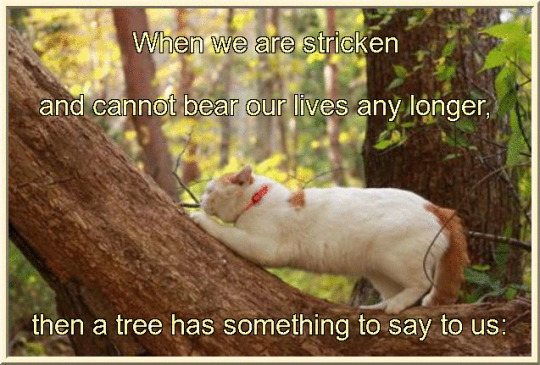

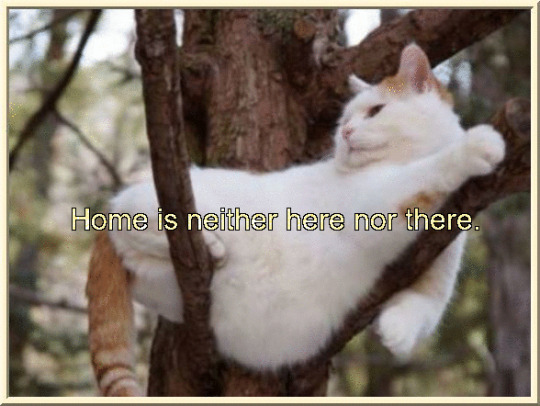
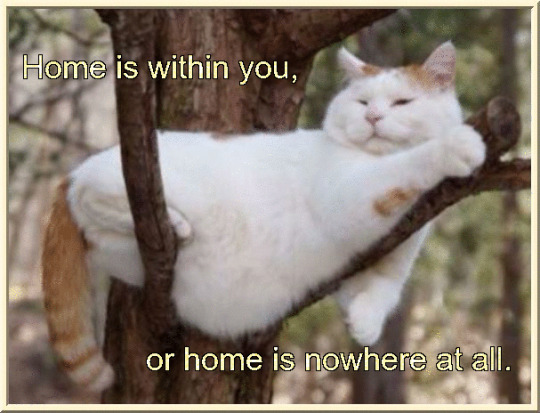
Hermann Hesse, Wandering: Notes and Sketches (1920)
44K notes
·
View notes
Text
14K notes
·
View notes
Text
having to come to terms with the fact that love is not an everlasting performance in which you attempt to retain the attention of your significant other but rather a release of control and putting faith into them and trusting them to choose to stay with you no matter what you have to offer
227K notes
·
View notes
Photo

My mice just randomly created 3 angora self blacks. I say randomly because none of them are angora, nor were any of their other children but here we are. I’m sending at least 1 to a friend, possibly all three.
213 notes
·
View notes


